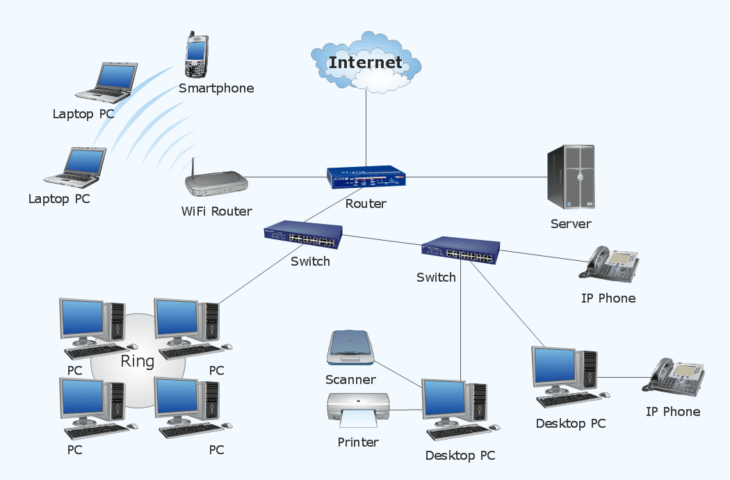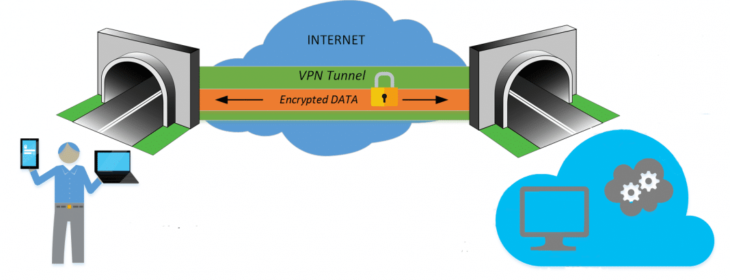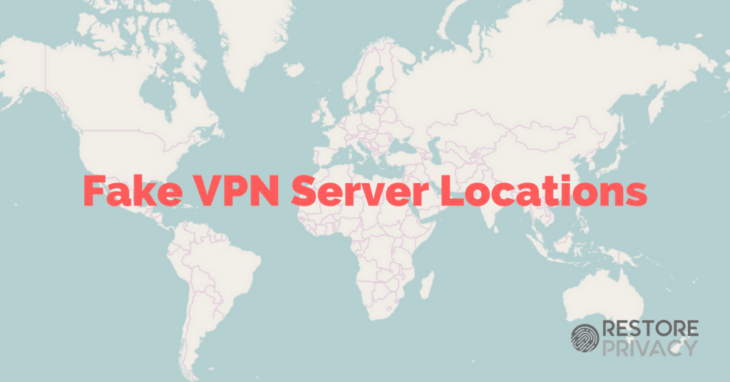Having launched your business, it is natural to move quite a lot in the bid to get new clients and customers. However, you will still be connected to business even while you are on the go. After all, free Wi-Fi is now an obvious amenity in coffee shops, hotels, restaurants, airports, and many other places.
In essence, your tablet or laptop is your office. That being said, you should note that your laptop (or rather, your office) is not entirely secure when you use Wi-Fi. Wi-Fi is simply radio signals that are very easy to intercept.

img source: informationstash.com
A VPN can prevent this according to Peter Zaborszky of BestVPN.com. Peter set up BestVPN to review the world of VPNs and let people know what they are buying, and he knows what he’s talking about having reviewed dozens of services.
The ease of interception is only half your worries, Peter told us. Peter said that “there is also the issue of how valuable your personal information is to hackers. Once they get hold of your personal information, they stand to make money by selling your personal information to such as passwords, bank account numbers, and any other personal information you may harbor in your device. A more dedicated hacker may decide to use your personal information to gain access to your client’s network, damaging your reputation.”
img source: scmp.comPeter reckons that small business owners should use VPNs as a means of keeping their network traffic as private as possible and as safe as possible. He took us through the details on the matter and helped us create the content below.
What is a VPN?
A Virtual Private Network, popularly known as a VPN creates a private network between the devices connected to Wi-Fi and the website or application you are connecting to. The use of the word virtue is a reference to its software nature. VPNs are software-based networks.
With the above in mind, herein we will explore the various factors that you should consider when choosing a VPN service. We also have links to the VPN services and discounts. By clicking the links, we may earn revenue commission when you purchase the products and or services.

img source: gifer.com
The first thing when it comes to using VPN is to decide whether you will primarily connect to your home network or the cloud. If you intend to your office or home network securely, the best option is to invest in a router or small server that will be you VPN’s endpoint. This feature is present in many (but not all) of the high-end consumer routers. There are also software programs you can use in Mac and Windows computers to provide with home server VPN capabilities.
However, for most people, the goal of using VPN is to browse the internet and connect to cloud-based products such as email services and social media platforms and services safely and securely. For this kind of use, you need a VPN service. Below we will explore the various considerations to make when choosing a VPN service.
Considerations when Purchasing a VPN
Secure Protocol – The purpose of using a VPN is to enhance your security while using the internet. Therefore, just as you would not fathom creating a tunnel using mud but you would concrete, you should go VPNs that make use highly secure protocols to create a secure VPN tunnel between your devices and the application you are accessing.

image source: flixed.io
Privacy Protection – Another function of a VPN allows users to access the internet anonymously. In doing so, you protect your identity from hackers and other malicious entities who might take advantage of what they know about you to discriminate or attack you.

img source: blog.mozilla.org
With this in mind, aim to use VPN services wherein the service provider does not collect and store traffic logs. Look for a VPN service provider that offers a robust privacy policy. Finally look for a VPN service provider that operates various servers in geographical locations out of reach from oppressive governments.
Capacity – Whether you are using a VPN for personal or business purposes, the last thing you would want to experience is cut off stemming from exceeding data limits. With this in mind, when identifying prospective VPNs, make a point of reading through the terms of service carefully. Determine whether the VPN service provider does limit the data you send over the VPN network and whether they place limits to the bandwidth you use. If possible find out their network capacity; for instance, how many servers they run and whether they operate from a large cloud service provider such as Amazon. The golden rule is; the bigger the network, the better.
Beware of Fake Services – Just like there are fake antivirus providers, app stores, email services, etc. there are fake VPN service providers. These are service providers who are after the information that you send through the tunnel. To avoid using fake VPN services read reviews of available VPNs on trusted publications such as CNET and ZDNet.

img source: restoreprivacy.com
Do Not Use Free VPN Services – While some VPN service providers may offer free one-month services for you to test out their service, there are those that offer entirely free VPN services. You should avoid such services. A VPN service producer is in the business of providing a service and generating revenue. If you they do not charge their services users, they must generate an income somewhere else – usually by selling your information.
Just purchase services that you can afford. There are plenty of $10 per month VPN services. And if you can pay for a year’s worth of subscription, the price will go down.
If you are looking for a VPN then perhaps consider BestVPN.com – they have a wide range of great reviews of VPNs and their site is well worth consulting.
